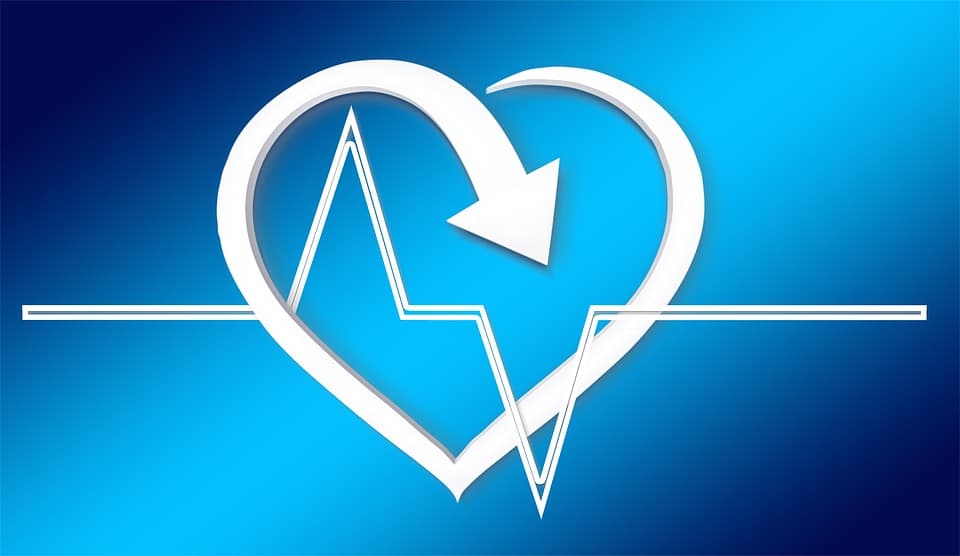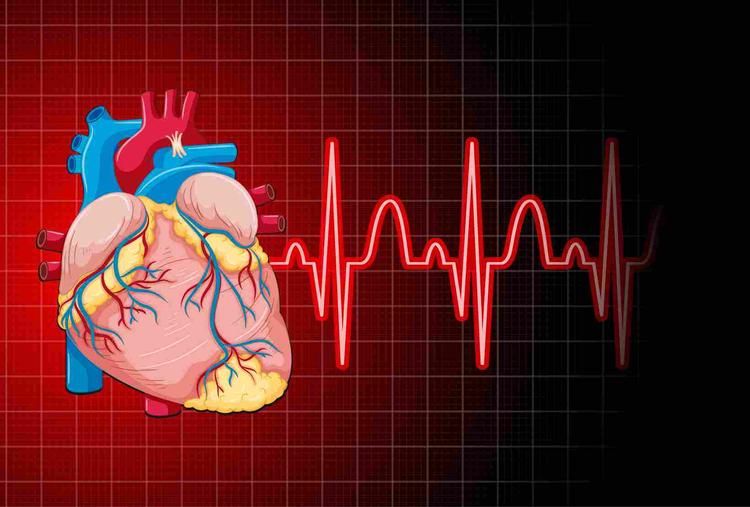Normal Pulse Rate by Age: Pulse Rate vs Heart Rate

Medically Reviewed By
Dr. Ragiinii Sharma
Written By Dr Divya Rohra
on Feb 25, 2022
Last Edit Made By Dr Divya Rohra
on Mar 18, 2024

Pulse rate and heart rate are two terms that are often considered the same. But are they actually similar? Well, in this article, we will discuss pulse rate in detail. Pulse rate is the number of times your heart beats in a minute, that is, it is measured in beats per minute (bpm). The normal pulse rate is different for different people depending upon their age and lifestyle. Read the article to know about the normal range of pulse rate in males, females and children of different age groups and the major differences between heart rate and pulse rate.
|
A faster heart rate or tachycardia isn’t a light subject. It can be an early clinical symptom of poor heart health, arrhythmia, and atherosclerosis. All of these complications increase the risks of heart failure and heart attacks in the future. Don’t wait till the worst hits. Avail comprehensive testing to overcome such risks in the future. |
In this Article
Normal Pulse Rate
Pulse rate is a vital parameter that conveys important health information. According to studies, the normal adult pulse rate lies between 60 to 90 beats per minute (bpm). According to the American Heart Association (AHA) the normal sinus pulse rate lies between 60 bpm to 100 bpm. Your pulse rate can get influenced by factors like your age, smoking habit, fitness, air temperature, history of cardiovascular diseases, expression of emotions, medicines, body size and proportion.
Normal Pulse Rate Range In Men
The normal pulse rate in adult males and females is different. The pulse rate in adults largely depends upon the age. The pulse rate also varies depending on whether you are resting or exercising. The normal pulse rate in males while resting is tabulated below:
| S.No. | Age (years) | Pulse Rate (bpm) |
| 1. | 18 - 25 | 56 - 65 |
| 2. | 26 - 35 | 55 - 65 |
| 3. | 36 - 45 | 57 - 66 |
| 4. | 46 - 55 | 58 - 67 |
| 5. | 56 - 65 | 57 - 67 |
| 6. | > 65 | 56 - 65 |
Normal Pulse Rate Range In Women
The pulse rate in females is around 2 - 7 bpm higher than that in males of the same age. According to the Women’s Health Initiative (WHI), women with high pulse rates are more prone to heart attacks. The optimum range of pulse rate for women at different ages is tabulated below:
| S.No. | Age (years) | Pulse Rate (bpm) |
| 1. | 18 - 25 | 58 - 68 |
| 2. | 26 - 35 | 57 - 68 |
| 3. | 36 - 45 | 59 - 69 |
| 4. | 46 - 55 | 60 - 70 |
| 5. | 56 - 65 | 59 - 70 |
| 6. | > 65 | 58 - 68 |
The normal pulse rate in females differ when they are pregnant. The normal range of pulse rate in each trimester during pregnancy is tabulated below:
| S.No. | Trimester | Pulse Rate (bpm) |
| 1. | 1st trimester | 63 - 105 |
| 2. | 2nd trimester | 67 - 112 |
| 3. | 3rd trimester | 64 - 113 |
Normal Pulse Rate Range In Children
Since the normal pulse rate varies with age, children tend to have different pulse rates as compared to adults. The average heart rate in children between age 6 - 15 ranges from 70 bpm to 100 bpm. The pulse rate of children at various stages of life are tabulated below:
| S.No. | Age (years) | Normal heart rate (bpm) |
| 1. | < 1 month | 70 - 190 |
| 2. | 1 - 11 months | 80 - 160 |
| 3. | 1 - 2 years | 80 - 130 |
| 4. | 3 - 4 years | 80 - 120 |
| 5. | 5 - 6 years | 75 - 115 |
| 6. | 7 - 9 years | 70 - 110 |
| 7. | > 10 years | 60 - 100 |
Pulse Rate vs Heart Rate
Heart rate and pulse rate are two different parameters, although they may seem similar. Your heart rate measures the heart beats, while a pulse rate measures the rate of blood pressure. Heart rate refers to the number of times your heart beats each minute, whereas pulse in the mode through which you can feel each beat of your heart. Since, heartbeat pumps the blood through your body, it causes a change in the blood pressure that generates a pulse in the arteries. When you are healthy, your heart rate is in sync with your pulse rate. People who have certain heart issues, have a lower pulse rate as compared to the heart rate. There are other factors like obesity, smoking, alcohol consumption, medicines and body mass that can affect the pulse rate. The changes in heart rate over time is detected by the electrocardiogram (ECG) while the changes in pulse rate over time is detected by photoplethysmography (PPG).
Takeaway
One in every four deaths are generally due to irregular heart rate. Therefore, pulse rate is a very important factor that depicts a lot about your health condition. Now that you know about the optimum range of pulse rate in males, females and children at different age groups, you can better monitor your pulse rate and can also manage it by taking appropriate measures.
Frequently Asked Questions (FAQs)
-
How can I measure my pulse rate?
You can measure your pulse rate by feeling your pulse on your wrist, crook of the elbow, top portion of the foot and the side of your neck as well. Gently feel your pulse and count the number of throbs you feel in a minute. You can also count the number of throbs in 15 seconds and then multiply it by 4 to get your pulse rate.
-
How can I lower my heart rate?
Following simple lifestyle modifications like regular exercise, appropriate diet, reducing stress and stopping smoking can help you to lower your heart rate considerably.
-
What will be the maximum heart rate for me?
The highest level of heart rate during exercise is known as maximum heart rate or target heart rate. It can be calculated using the formula:
Maximum heart rate = 220 - your age in years
-
What happens when the pulse rate decreases?
Reduced pulse rate, that is, less than 60 bpm, indicates a condition known as bradycardia. This condition can occur either due to the failure of the sinus node or due to the blockage of the heart.
-
What happens when the pulse rate increases?
The increase in the pulse rate, that is, above 100 bpm, indicates tachycardia that can be due to high blood pressure, hyperthyroidism, poor blood supply, electrolyte imbalance, stress, and alcohol consumption.
Leave a comment
4 Comments
Thenmozhi
Apr 6, 2024 at 7:08 AM.
heart pumping level 15_20 percent mam . what treatment.. mam why is this problem
Myhealth Team
Apr 10, 2024 at 9:19 AM.
Hi, It seems like you're describing a low heart pumping level, possibly around 15-20 percent. This condition is known as a reduced ejection fraction, which can indicate heart failure. Treatment may include medications, lifestyle changes, and in some cases, medical procedures or devices to support heart function. Please consult with your doctor further. Thankyou
Nonye
Jan 19, 2024 at 12:26 AM.
Please I want to know if a pulse rate of 58 bpm is normal in an elderly person of 59 years old
Myhealth Team
Jan 23, 2024 at 12:56 PM.
A pulse rate of 58 bpm is generally considered normal for a 59-year-old. However, individual health and symptoms should be considered. If there are concerns, consult a healthcare professional for a thorough evaluation.
Pooja singh
May 24, 2023 at 5:07 AM.
Mujhe asthma hai to meri pulse rate high rhti hai 100 se upar to kya sabhi asthma marijo ki pulse rate 100 ya 100 se upar rehti hai
Myhealth Team
May 24, 2023 at 7:23 AM.
Hi, Pulse rate can vary among individuals with asthma, and it is not necessarily true that all asthma patients will have a pulse rate consistently above 100 beats per minute. While it is possible for some asthma patients to experience an elevated pulse rate during asthma exacerbations or episodes, it is important to note that individual responses to asthma can differ. For more information we request you to contact your doctor. Thankyou
KAVITHA
May 17, 2023 at 12:03 PM.
My son is 10 years old, his heart is beating very fast, he is a light fever, he is having difficulty breathing only a few times, what is the problem?
Myhealth Team
May 19, 2023 at 6:18 PM.
Hi Kavitha, There are a few possibilities for your son's symptoms. For an accurate diagnosis we request to you to consult to a doctor immediately. Some potential causes for his symptoms could include: Anxiety or Panic: Anxiety or panic attacks can cause rapid heartbeat, difficulty breathing, and occasional fever. Emotional or psychological factors could be contributing to his symptoms. Respiratory Infection: A respiratory infection, such as a cold or flu, can lead to symptoms like rapid heartbeat, fever, and difficulty breathing. These infections are common in children and usually resolve with proper care. Allergic Reaction: An allergic reaction to an allergen, such as pollen or certain foods, can cause similar symptoms. Identifying potential triggers and consulting with an allergist may help determine the cause. Other Medical Conditions: There could be other underlying medical conditions causing these symptoms, such as asthma, heart conditions, or infections. A healthcare professional can evaluate his symptoms and provide appropriate guidance. It's important to seek medical advice to determine the exact cause and receive appropriate treatment for your son's symptoms. Thankyou



